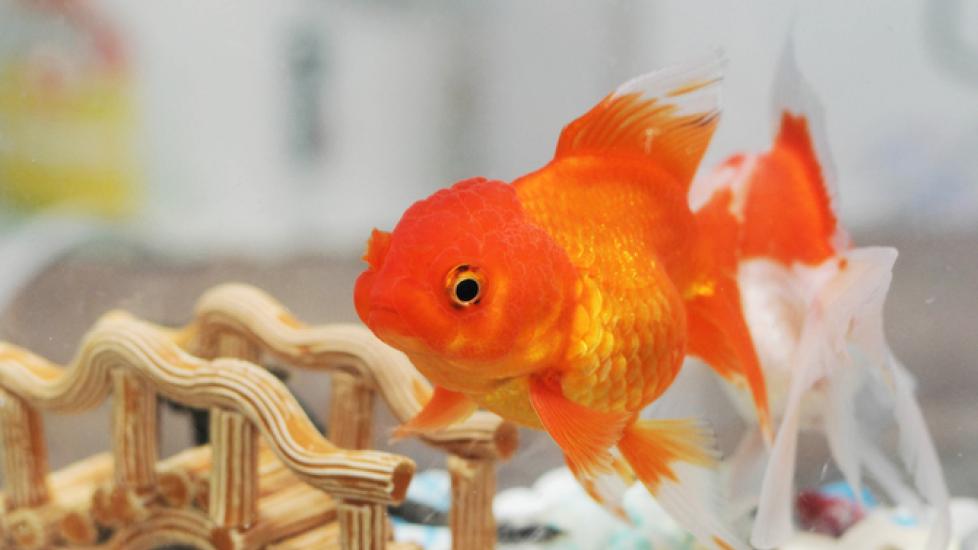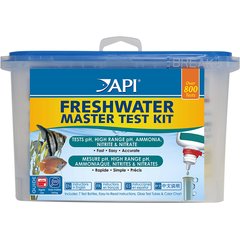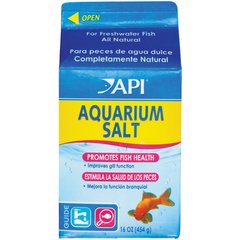Who’s Watching Whom? Inside the Mind of Your Pet Fish
By Jessie M Sanders, DVM, CertAqV – Aquatic Veterinary Services (CA)
You’ve may have heard the joke: A fish and its three second memory will never be bored swimming around its bowl because by the time it makes a full circle, it’s already forgotten where it’s been.
But what if your fish were capable of much more than you assume? What if your fish are judging you and making assumptions the same way you watch them?
How is Fish Intelligence Measured?
By what means do we measure intelligence in any species? Is it fair to hold fish to the same standards as fluffy, huggable pets? Certainly, it is easier to anthropomorphize and try to understand what your dog or cat may be thinking that it is with your fish. Anyone who has brought their cat or dog to the vet can observe their feelings of anxiety and avoidance, but it is harder to read a pet fish.
What if your fish is capable of understanding more than even your cat or dog? Are the behaviors of memory, cooperation, recognition of individuals, and tool use even possible for your pet fish? Well, it may surprise you to learn that research has shown that fish are capable of all of this and more (1). A fish’s brain is very similar to all other vertebrates and shows the same complexity and divisions, allowing them the capability to process information very similarly to what our fluffy pets perceive (2, 3, 4, 5). And this goes for all teleost fish, from your basic bettas and goldfish to the large ocean and lake fishes.
How to Recognize Fish Intelligence
In my aquatic veterinary career, I have worked with a broad spectrum of fish patients in all stages of health and disease. From working closely with all of these fish, I can tell you from experience that fish can be very intelligent and learn exceptionally fast. At ponds that I have visited multiple times, the patients either recognize my voice, footsteps, or blue scrub top and will swim to the farthest side of their pond. They have learned that a visit from me involves being chased with a net, caught, and isolated in a dark box.
Koi ponds that have been visited by predators, either racoons or large birds, will also show signs of learning. When the big winged thing or small fluffy clawed ball make a repeat appearance, the fish know to run for cover. It only takes one or two missing fish to teach the others what to do when trouble arrives.
Many completed studies have indicated that fish are significantly more evolved than we give them credit for. Instead of that three-second memory, fish actually have very good memories. Even the most basic fish tank inhabitants will start to show anticipation of meals on a regular basis. Be they koi, goldfish, angelfish, cichlids, clownfish, or tangs, fish learn quickly the very basic task of when and where food will appear — some within only a few weeks. (6, 7, 8).
Training Your Fish
You can train your pet fish to expect food with a sound, a target, or just by approaching their tank or pond at a certain time of the day, every day. Even if you stop the behavior for a time, some fish will pick up the behavior faster than they learned it in the first place (9). Try incorporating a signal that your fish can see or hear to announce that it is feeding time. You’ll find that your fish catch on quickly and will start to come to the signal even when food is not presented to them.
The most common trials looking into fish intelligence have been run with fish figuring out a maze. MythBusters did an episode where goldfish had to swim through a series of rings to find food. Although limited in its design, repeat tests showed the fish were able to find their food treat after passing through a series of rings in less than a minute. A similar test was done with rainbowfish, and these fish were able to recall the escape sequence up to a year after having it removed. (10) Remember this when your 2-year-old asks where the snacks are for the billionth time.
Fish intelligence is limited only by what humans comprehend as “intelligence.” Trying to anthropomorphize human emotions on any animals can be difficult; it is much easier when you can hug and cuddle them. But even with their slimy, scaly nature, fish can be amazing pets and learn a lot of the same silly tricks you teach your dog, just with a slight adaption for an underwater environment.
So, the next time you watch your fish swim around its tank, wondering if he knows where he is, that fish may be looking out and thinking the exact same thing about you.
References:
1 Bshary R, Wickler W, Fricke H (2002) Fish cognition: a primate’s eye view. Anim Cogn 5:1–13
2 Brown C, Laland K, Krause J (2011) Fish cognition and behavior. In: Brown C, Krause J, Laland K (eds) Fish cognition and behaviour. Wiley, Oxford, pp 1–9
3 Rink E, Wullimann MF (2004) Connections of the ventral telencephalon (subpallium) in the zebrafish (Danio rerio). Brain Res 1011:206–220
4 Broglio C, Go´mez A, Dura´n E, Salas C, Rodrı´guez F (2011) Brain and cognition in teleost fish. In: Brown C, Krause J, Laland K (eds) Fish cognition and behavior. Wiley, Oxford, pp 325–358
5 Sacchetti B, Scelfo B, Strata P (2009) Cerebellum and emotional behaviour. Neuroscience 162:756–762
6 Sneddon LU (2011) Pain perception in fish: evidence and implications for the use of fish. J Conscious Stud 18:209–229
7 Reebs S (1999) Time-place learning based on food but not on predation risk in a fish, the inanga (Galaxias maculatus). Ethology 105:361–371
8 Reebs S (1996) Time–place learning in golden shiners (Pisces: Cyprinidae). Behav Process 36:253–262
9 Gomez-Laplaza LM, Morgan E (2005) Time-place learning in the cichlid angelfish, Pterophyllum scalare. Behav Process 70:177–181
10 Brown C (2001) Familiarity with the test environment improves escape responses in the crimson spotted rainbowfish, Melanotaenia duboulayi. Anim Cogn 4:109–113
11 Brown C (2015) Fish intelligence, sentience and ethics. Anim Cogn 18:1-17




